2026 World Cup – Business Aviation Planning Guide

The 2026 FIFA World Cup promises to be the most complex operating environment North America has ever seen for business aviation. With 48 teams competing across 16 cities in three countries, operators who wait to plan will find themselves scrambling for slots, parking, and even basic airport access.
Here’s what you need to know to ensure your missions succeed during this unprecedented event.
The Scale of the Challenge
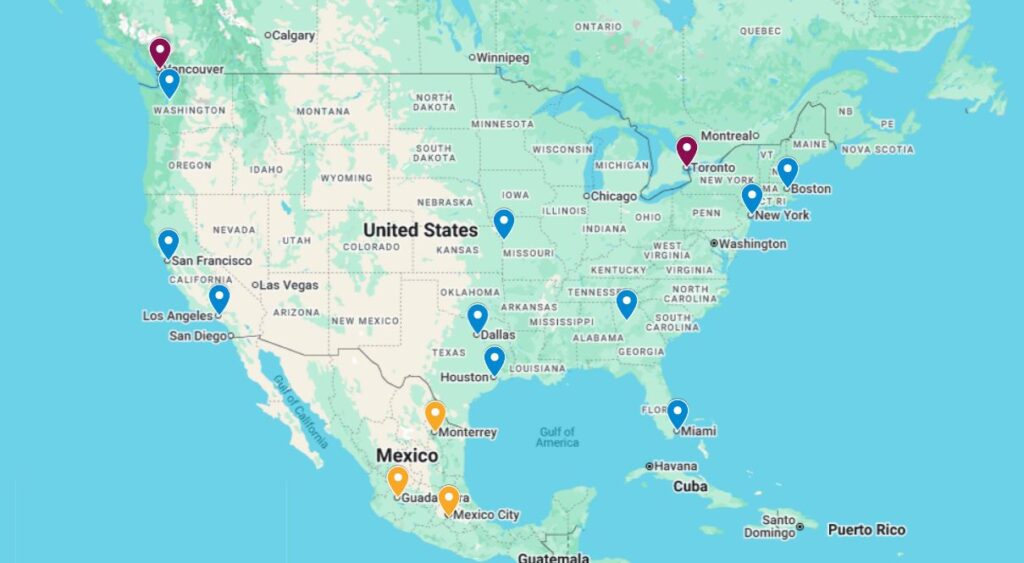
This isn’t just another major sporting event. The 2026 World Cup will draw more than six million visitors to North America, creating traffic volumes that rival the Olympics. For business aviation, this means:
-
Severe airport congestion at 16 host cities
-
Complex multinational regulatory requirements
-
Potential slot restrictions at major airports
-
Limited ground services and parking availability
The tournament kicks off June 11 in Mexico City and concludes July 19 in the New York/New Jersey area — both among the region’s most challenging operational environments.
Critical Planning Timeline
Now through December 2025
-
Begin permit applications, especially for Mexico
-
Coordinate early with ground handlers, hotel providers, and catering/security vendors
December 2025
-
Tournament draw takes place
-
Airport authorities are expected to finalize slot programs and traffic restrictions around this time
January to May 2026
-
Final confirmations and logistics
-
Late planners may face limited or no access to preferred airports
Mexico: High Demand and Permit Complexity
Mexico will host the opening match at Estadio Azteca in Mexico City on June 11. Expect heavy air traffic and ground congestion across all three host cities.
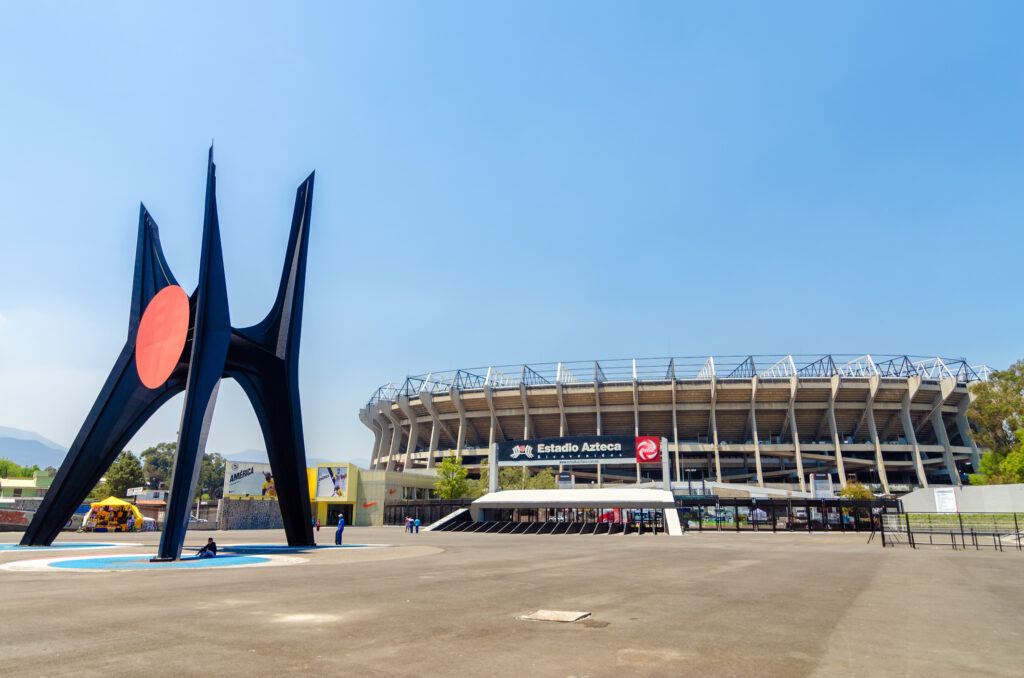
Exterior of Azteca Stadium in Mexico City
Host Cities:
-
Mexico City (Opening Match – June 11)
-
Guadalajara
-
Monterrey
Primary Airports:
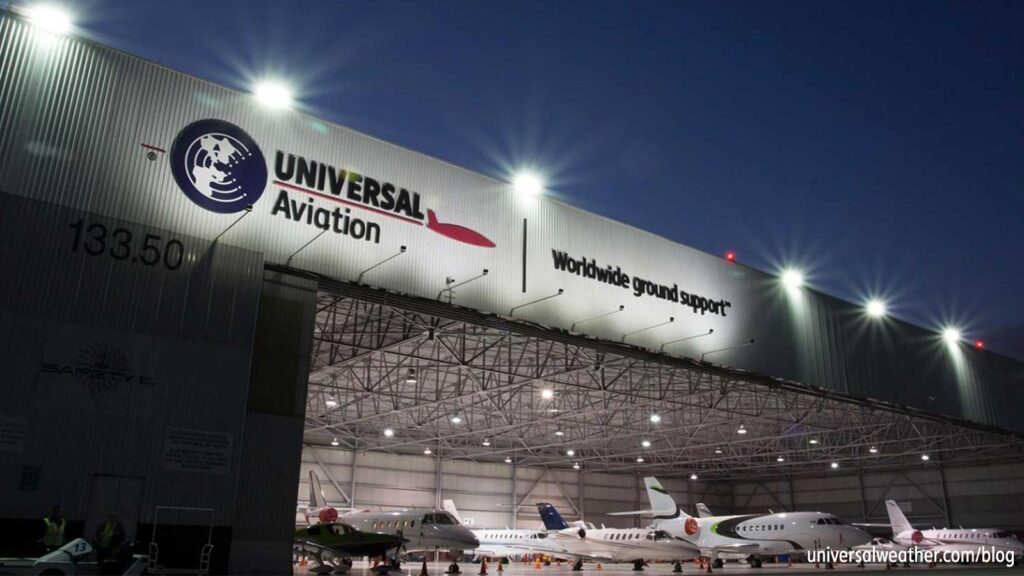
-
Mexico City
-
MMMX (Mexico City): Extremely limited GA access; mostly reserved for cargo, charter, and diplomatic flights.
-
MMTO (Toluca): 24/7 AOE with full GA services and ground support; primary option for accessing Mexico City.
-
-
Guadalajara
-
MMGL (Guadalajara): Main airport for Guadalajara.
-
- Monterrey
- MMMY (Monterrey): Main GA facility for Monterrey.
- MMAN will not be considered a suitable alternate airport for operations into Monterrey due to the strict military regime in place, which could create significant complications for client handling. As a result, we do not recommend this airport as an alternate.
- MMIO is just one hour away from Monterrey and is a suitable alternate.
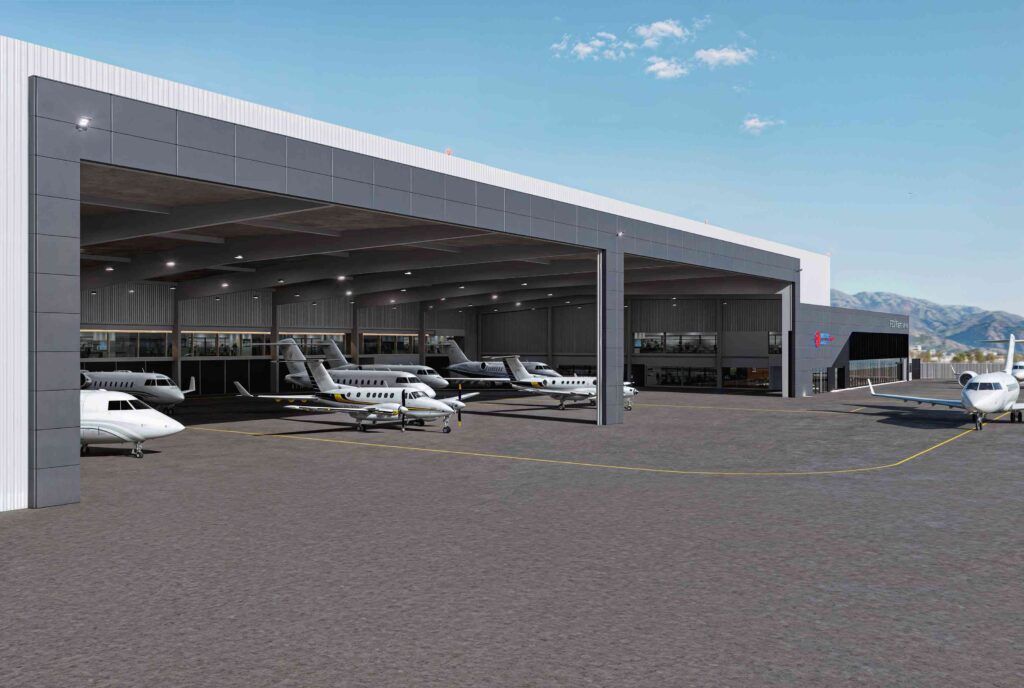
Considerations:
-
Permits: Mexico’s aviation authority (AFAC) requires detailed applications, especially for non-scheduled GA flights
-
Slots: Mexico may prioritize World Cup sponsors if slot programs are implemented — confirmation is still pending
-
Congestion: Mexico City’s airspace is already congested under normal conditions
-
Security: Operators should expect elevated protocols in and around match venues
Universal Aviation Mexico is fully operational at all three Mexican host cities, with a new FBO and VIP terminal opening in Guadalajara ahead of the tournament.
United States: Regulatory Complexity Across 11 Cities

As the primary host nation, the U.S. will see the most overall traffic. Regulatory burdens and slot-controlled airports will present challenges throughout the country.
Host Cities:
-
Atlanta
-
Boston
-
Dallas
-
Houston
-
Kansas City
-
Los Angeles
-
Miami
-
New York/New Jersey (Final – July 19)
-
Philadelphia
-
San Francisco
-
Seattle
Key Considerations:
-
CBP and eAPIS: All GA flights must comply with U.S. Customs and Border Protection (CBP) and eAPIS requirements
-
Immigration Policy Shifts: Operators should monitor developments around proposed travel bans or visa restrictions. These could impact crew and passenger entry from certain countries during the tournament period
- Slot Restrictions: Likely at JFK, EWR, LAX, ATL, MIA, and others — especially during match days
-
Security Measures: Additional screening and TSA coordination may be introduced
Final Match Notes:
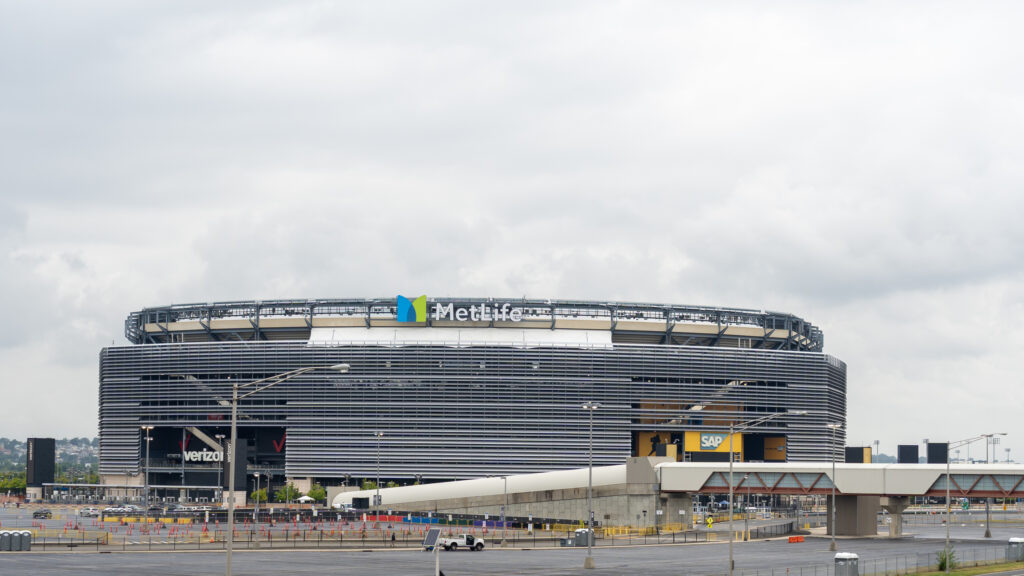
East Rutherford, NJ, USA. View of MetLife Stadium.
-
Scheduled for July 19 at MetLife Stadium
-
Expect high slot demand and parking restrictions at KTEB, EWR, and JFK
-
Consider positioning at secondary airports
Universal Aviation agents will be positioned at major U.S. host cities to assist with on-site coordination and day-of-arrival support.
Canada: Fewer Matches, Still Operationally Key
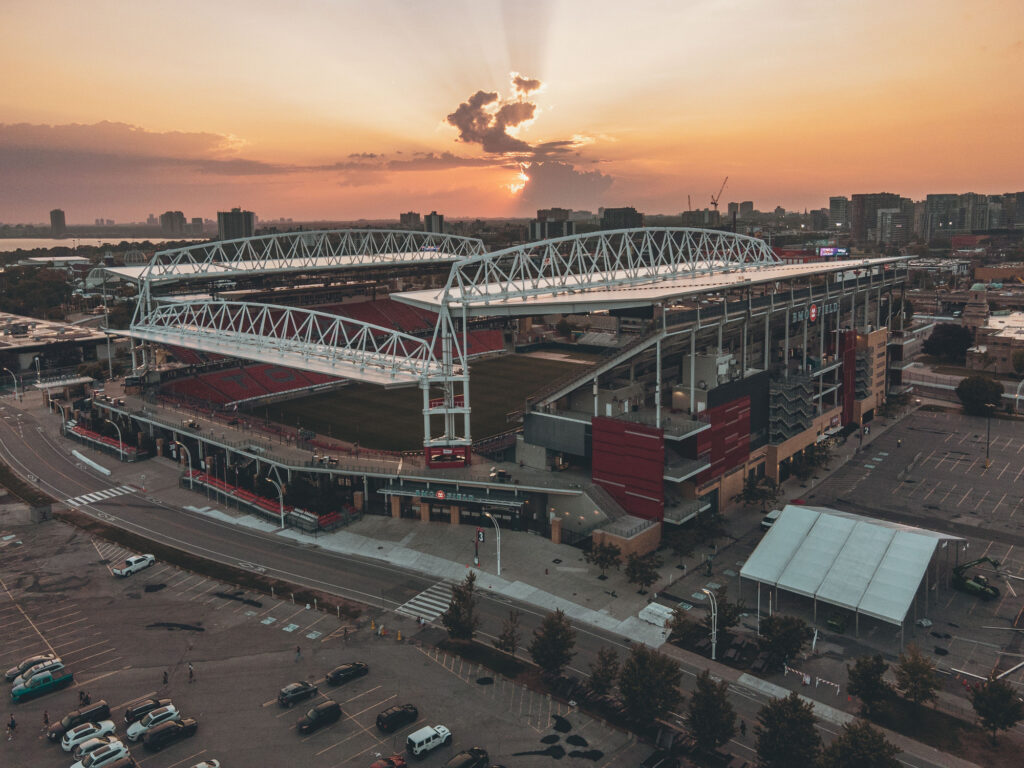
Toronto, Canada – Aerial view of BMO Field in Toronto.
Canada may host fewer matches, but its location and infrastructure make it strategically valuable — particularly for transatlantic arrivals, diversions, or operators avoiding U.S. congestion.
Host Cities:
-
Toronto
-
Vancouver
Considerations:
-
CANPASS: Required for most GA clearances
-
Weather: Summer flying in coastal cities like Vancouver can bring fog or sudden weather disruptions
-
Airspace Routing: Canadian FIRs may be key for efficient routings into U.S. destinations
Universal teams are working with CBSA and Canadian airports to support CANPASS coordination and advance customs planning.
Recommendations for Operators
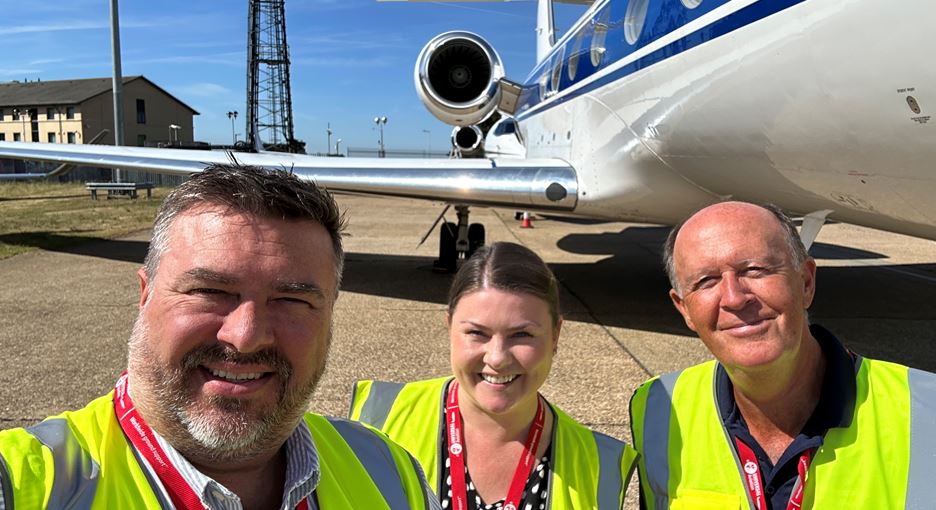
Charter operators visiting the United States from overseas for the World Cup are strongly encouraged to reserve a dedicated Universal Aviation agent for on-site support.
-
Start Now: Secure permits, ground services, and accommodations early — particularly in Mexico, where permit lead times and limited GA capacity can create delays
-
Watch for Slot Procedures: December 2025 will be the critical month for new operational details as match locations and slot programs are finalized
-
Build Flexibility: Have alternate airports ready for key cities like New York, Los Angeles, and Mexico City in case of last-minute restrictions or limited availability
-
Track Country-Specific Rules: Regulatory differences across the U.S., Mexico, and Canada will affect customs, overflight, and security procedures
-
Secure On-Site Support: For high-demand locations, consider securing a dedicated Universal Aviation agent to assist with local coordination, customs, and day-of-arrival logistics
-
Plan Catering Early: Work with Air Culinaire Worldwide now to develop a catering strategy tailored to your destinations and passenger preferences — availability may be limited near stadiums and during peak traffic days
-
Stay Alert: Monitor security developments, weather patterns, and potential political disruptions that may impact operations
U.S. and FIFA Introduce Fast-Track Visa System for World Cup 2026
The U.S. government and FIFA have launched FIFA PASS, a priority visa-appointment system for FIFA World Cup 2026 ticket-holders traveling to U.S. host cities. For business aviation operators, this may help streamline entry for passengers who need U.S. visas, reducing lead times during a period of expected heavy demand across 16 host airports. While it does not replace standard visa requirements, the program provides faster scheduling and may ease congestion for international charter and private flights supporting World Cup travel.
Bottom Line
The 2026 World Cup will be one of the most operationally demanding events business aviation has ever faced. Operators who plan early, stay informed, and build flexibility into their mission planning will be positioned for success. Those who wait may find themselves without options.
Universal is already working with operators across North America to prepare for high-traffic days, permit requirements, and airport restrictions.





